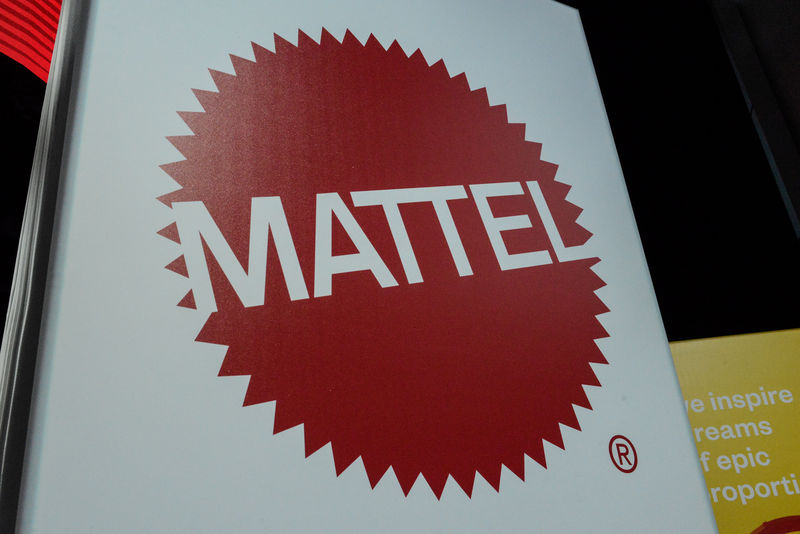(Reuters) - Mattel Inc (O:MAT) reported a surprise rise in quarterly revenue on Thursday, as the success of the latest "Toy Story" movie boosted demand for its action figures and a makeover of Barbie lifted sales of the iconic dolls, sending its shares up 5%.
The toymaker also achieved its full-year cost savings target six months ahead of schedule and posted a much smaller loss, as the company benefits from making toys modeled on big Hollywood titles and revitalizing the 60-year-old Barbie brand with variants based on popular celebrities and role models.
Worldwide sales in the action figures, building sets and games segment jumped over 20% in the second quarter, while they rose about 9% in the Barbie unit.
"Toy Story 4" circles around a group of toys, voiced by Hollywood A-listers Tom Hanks and Tim Allen, has made over $860 million worldwide.
Mattel is working to become the "partner of choice" for more entertainment companies, Chief Executive Officer Ynon Kreiz told Reuters.
"Historically, it wasn't an area we were focused on but going forward we are looking to do more. The success of 'Toy Story' is an example of our capabilities," he said.
Mattel's rival Hasbro Inc (O:HAS) earlier this week also beat quarterly profit and sales estimates on demand for action toys based on "Avengers: Endgame", reflecting the toy industry's shift away from developing new original properties to chasing big entertainment titles to grab kids' attention.
The company's second-quarter revenue rose 2.3% to $860.1 million, while analysts' on average had estimated a 3.3% drop.
Gross sales in North America increased 1% to $447.4 million, also beating analysts' estimates.
The company exceeded its savings target for the year, achieving $754 million in the first six months, compared with its initial target of at least $650 million.
Mattel said it expects to achieve another $100 million in savings by the end of 2019.
The company's loss narrowed to $108 million, or 31 cents per share, in the three months ended June 30, from $240.9 million or 70 cents per share, a year earlier.

On an adjusted basis, Mattel reported a loss of 25 cents per share. Analysts had expected a loss of 40 cents per share, but it was not immediately clear if the figures were comparable.